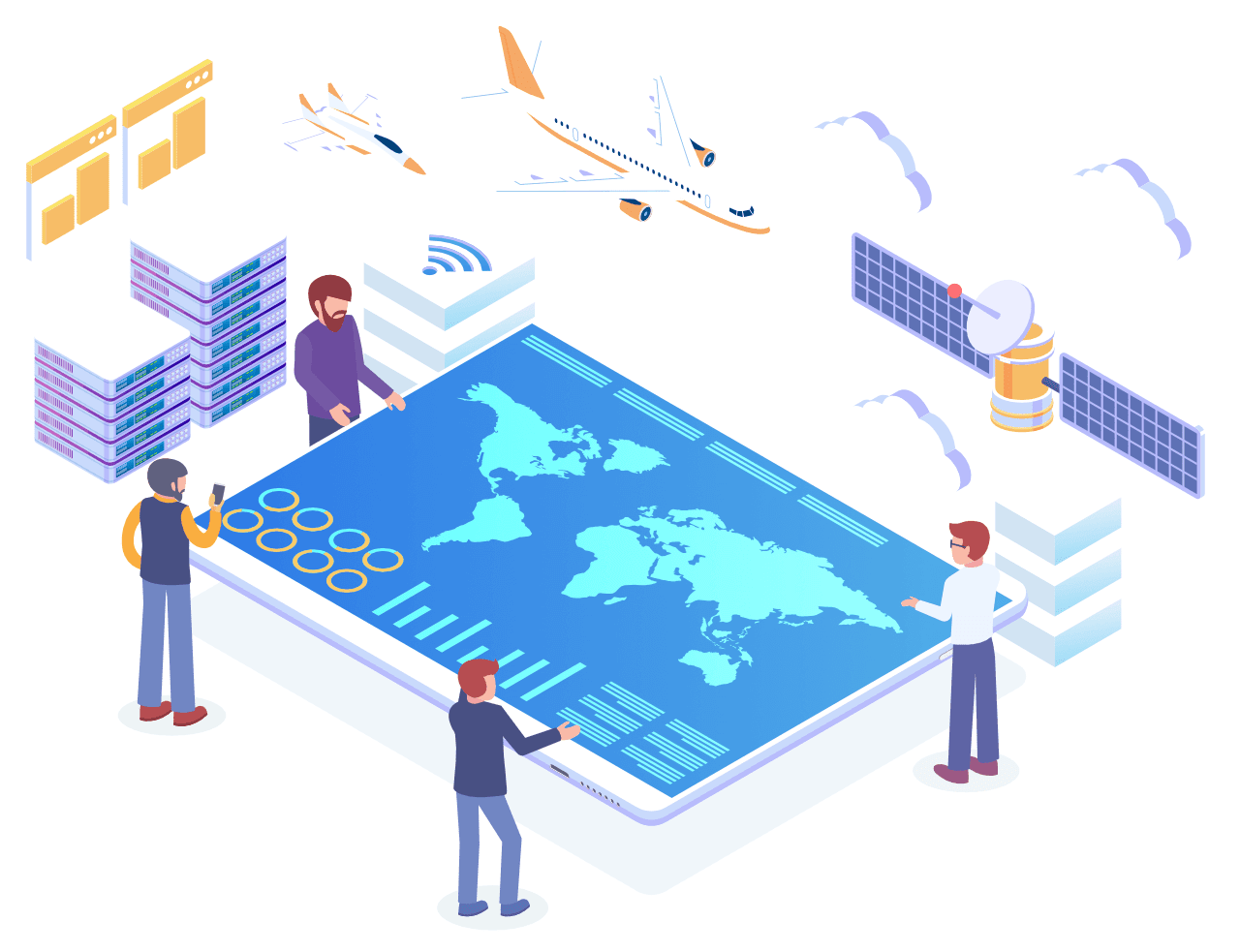
The coronavirus outbreak is causing unprecedented disruption and uncertainty in all industries with a unique network of organizations. Crisis scenarios are dynamic and impossible to predict, but an informed response could create trust and brand affinity. Therefore, to cope with long-term disruptions, outages, and pandemics, organizations need flexible strategic plans.
The situation of every business is often dynamic and impossible to predict, with each organization’s exposure uniquely influenced by industry, geography, and its own operating model. The well-being of workers and human resource management are high priorities for businesses, and these factors are exacerbated due to several risk factors.
Moreover, travel restrictions also affect normal operations, and remote working is not always a viable option. Interaction with consumers on the front line has a significant impact on customer satisfaction, customer loyalty, and customer service. In addition, human resource management, including training, education, and development, must also be taken into account. Here are 5 things that businesses have learned from a global pandemic:
1. Anticipate Risks In Supply Chain
1. Anticipate Risks In Supply Chain
The immediate focus of the short-term mitigation is to minimize the impact of the outbreak on the supply chain that ultimately affects customer satisfaction and retention. The first shockwaves of the outbreak affected many countries around the world, owing to globally interconnected supply chains.
Further, consumer behavior and purchasing behavior will influence demand; Problems in purchasing and in the supply chain can lead to bottlenecks and unavailability of certain products.
Understanding the risky landscape and quickly identifying preventive measures is crucial to minimizing losses from supplier disputes. Companies will have to consider the best way to mitigate the risks of a supplier dispute, such as the potential loss of customer confidence in their suppliers and the potential damage to their business.
Companies are trying to balance the need for fair and timely delivery to reduce delays caused by plant closures by setting up alternate sources of supply and ensuring that workers continue to work. For example, some contact centers have moved to remote operations, dividing their teams into cohorts that can be isolated to allow others to continue working. They have access to a wide range of resources, such as health centers, medical centers, hospitals, as well as other facilities.

2. Implement Operational Changes
2. Implement Operational Changes
Leading companies need to define internal alert levels to provide efficient and uniform responses at their sites. As governments and the World Health Organization provide guidelines on how best to protect the health and safety of their citizens, businesses are shifting current models and systems to accommodate changes and mandates. The outcome of operational changes may require a redirection of new or existing funds, and this may be necessary given the volatility of localized anomalies. This could have an impact on stock prices and economic volatility, subsequently also impacting pricing and tax policies.

Several countries have quickly implemented their national contingency plans. New standards have been introduced and organizations continue to adapt. The pandemic and the resulting standstill will have a significant impact on the global economy and financial markets in the short to medium-term.
3. Innovate and Adapt New Business Models
3. Innovate and Adapt New Business Models
It is noteworthy that innovation highlights the customer area of their company, which focuses on the introduction of new products and services to meet changing customer needs, adapt sales and service models, and improve the customer experience. The crisis revealed strategic resilience, defined as a company’s ability to be resilient to disruption. Reinventing organizations can provide lessons about resilience from the experience of other organizations.

The disturbance caused by the global pandemic led to the creation of new business models and innovation, which have been proven by far the most important factors in overcoming a crisis. Most company executives expect innovation to survive through crises and that more projects will follow.
The outbreak of the novel virus has subjected companies to numerous tests for resilience that became a cruel awakening for many. As companies begin to prepare for a post-pandemic world, those who lag behind, the more resilient actors can act to make up for lost ground.
Innovation in the business model proved to be a key differentiator in gaining progress during the pandemic. The majority of businesses struggled as their company’s business model had been weakened by the crisis, and only a few have successfully increased their competitive advantage. Executives who took the worst hit by the crisis have merely mentioned the general cuts in cost and staff. In most cases, innovation remained the main focus, which was spurred or accelerated by urgency and rapid response.
4. Create Digital Experiences
4. Create Digital Experiences
Customer behavior and needs have changed, and many entertainment and sports settings have shifted to digital practices. For instance, an on-demand fitness offering was made by a technology provider to exploit the increasing popularity of staying fit during the pandemic.
Sales by companies have also largely shifted to distant digital models. Many companies are adapting the way they offer their products and services to the market. Logistics companies are introducing contactless deliveries, while restaurants have switched to home delivery and ordering - up to - collection.
Meanwhile, consumer packaging companies are banking on immersive virtual experiences. Telecommunications companies, for example, are developing telemedicine applications to remotely diagnose and investigate COVID-19 in collaboration with health care and insurance providers to respond to the pandemic.
5. Build Business Resilience
5. Build Business Resilience
In spite of the challenges brought by the global pandemic, it is encouraging to see that many organizations are rising to the challenge and adapting their businesses to protect their employees and continue to serve their customers and communities.

Some companies have proved to be more resilient than others and are rapidly adapting their strategy to the challenges and opportunities that arise during a crisis.
Many companies are preparing for the long-term effects of the crisis on their employees and workplaces. As change continues to accelerate, the quickest and bravest creators are more likely to move far away from the field. This confirms that in times of great upheaval, there are also great opportunities.
The best way to build business resilience and improve business agility is by creating a plan and strategy from the lessons that we’ve learned from the global pandemic. Save strategies that work for unprecedented times and learn from model businesses that have successfully adapted and strengthened their position in the global market despite the crisis. Build a robust strategy to combat the next pandemic with Universal Creative Solutions to ensure a plan that’s backed with expertise and years of experience in aiding businesses to reach their goals and achieve their full potential.

